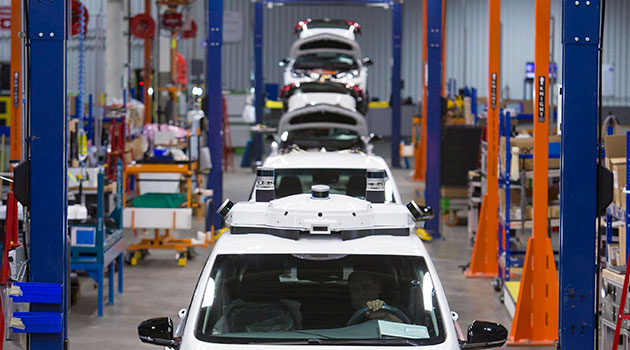General Motors may currently be the United States’ top automaker, but the ambitious company is making moves to beat its competitors at a potentially much more profitable game: the institution of autonomous armadas.
Officials with the Detroit stalwart announced last week that it would launch self-driving commercial fleets throughout the country starting in 2019, challenging not just the prowess of fellow auto manufacturers but a sizable portion of the tech industry and even taxi drivers and other car services. The large-scale effort will focus on introducing the technology in dense, urban environments, GM President Dan Ammann told investors earlier this month.
But the idea represents much more than a new facet of an already strong business: It may herald the change of GM’s entire corporate strategy, with the company’s Chief Financial Officer, Chuck Stevens, saying a fleet of robo-taxis has the potential to be even bigger than the manufacturer’s current core business, “with better margins.”
Indeed, the shift could allow the company to capture “several hundred thousands of dollars” from each rideshare vehicle, thanks to a lifetime of generating revenue—minus the need to pay for a driver, Amman said. The projected figure far eclipses the current value GM collects from each car sold, which doesn’t move much beyond the initial purchase price, usually hovering somewhere near $30,000.
Establishing a rideshare model could allow the company to pocket upwards of 40% of the cost of each ride—a strategy that could result in a bump of the program’s profit margins of up to 30% by 2025, Stevens said.
Still, GM is far from the only company to read the writing on the wall. It steps into a hyper-competitive world, in which deep-pocketed rivals like Uber and Google are quickly making moves toward the same end. Just last week, Uber purchased a fleet of 24,000 Volvos to convert into self-driving rides, while Google’s autonomous affiliate, Waymo, has been running a robo-taxi trial in Phoenix for several months.
For General Motors to ultimately be successful, it must remain vigilant and look for any obstacles in its path—including wayward taco trucks.
